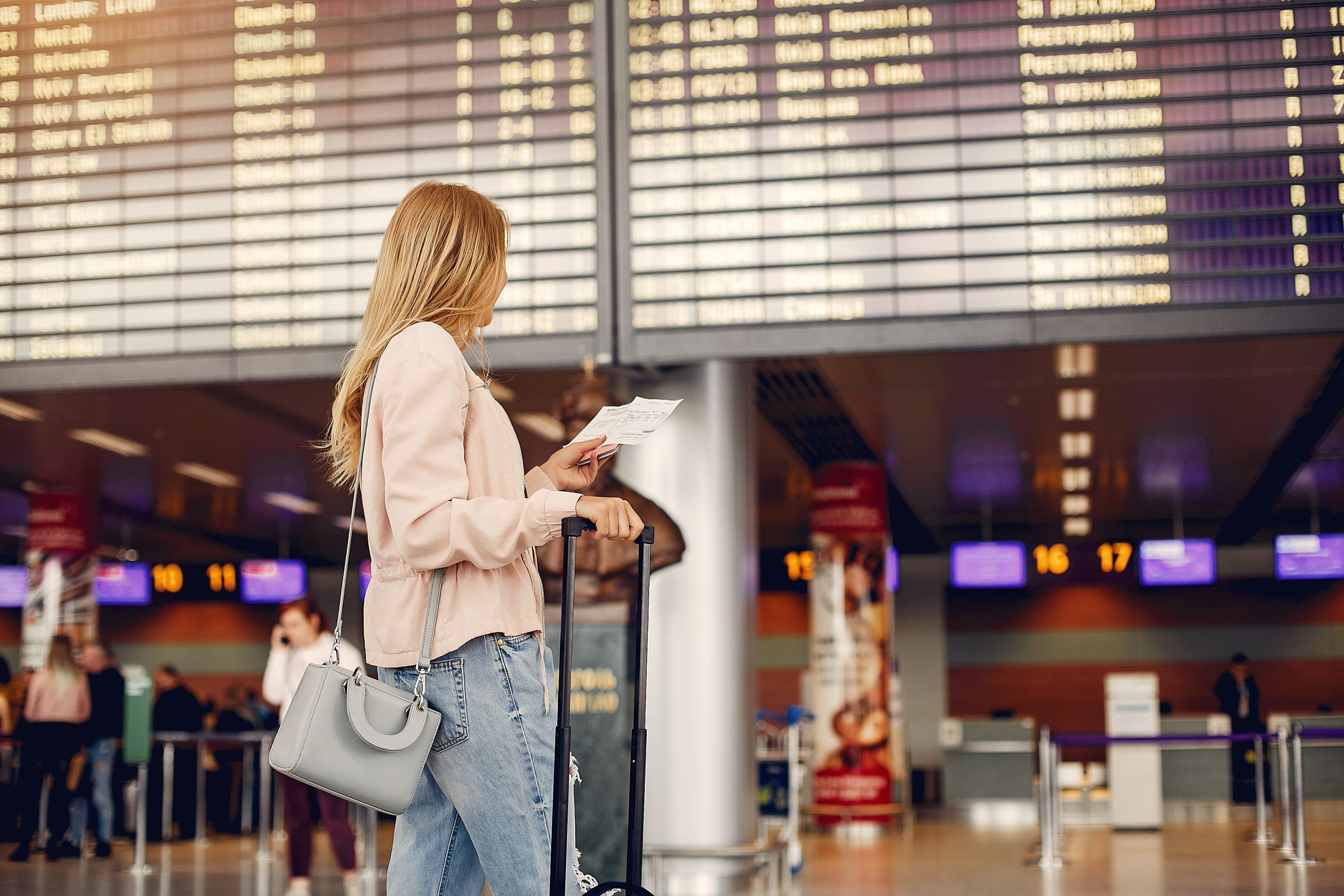By Lindsay B. Robinson, HIA Program Coordinator
Now that most COVID travel restrictions have lifted and services are more or less back to normal, I decided to finally re-book a trip that has been on hold since the summer of 2020. My travel buddy and I will be back to the skies and doing a three country tour after a long hiatus from airports. It feels like a distant memory packing and printing necessary documents even though we used to travel annually, and we’ve made this one especially active. For my travel buddy, Glenda, it takes a little more planning, as she must consider her hearing loss needs before travel, during the transit, and in each destination. Although a little more energy needs to be spent in her organization, she considers it well worth it for the hobby she loves and the experiences she is able to have in distant lands. So I asked her, what would you say to others with hearing loss who’d like to adventure like you do while staying safe? Here are a few of her notes:
 If possible, it’s a great idea to write a packing checklist well before your trip to ensure your stress levels remain low leading up to the departure date. For someone with hearing loss, make a separate list for items such as: hearing aids, hearing aid case, extra batteries (if required), dehumidifier case, any necessary charging cables and accessories. Packing all necessary items for your hearing technology in your carry-on bag will keep you from having that “oh snap!” moment in another country if your checked bag gets lost or something is forgotten and you need to hear!
If possible, it’s a great idea to write a packing checklist well before your trip to ensure your stress levels remain low leading up to the departure date. For someone with hearing loss, make a separate list for items such as: hearing aids, hearing aid case, extra batteries (if required), dehumidifier case, any necessary charging cables and accessories. Packing all necessary items for your hearing technology in your carry-on bag will keep you from having that “oh snap!” moment in another country if your checked bag gets lost or something is forgotten and you need to hear!
Start the trip by making sure your hearing aids are fully charged, whether that is an overnight charge in its charging case or inserting some fresh batteries before you leave home. Airports and train stations are some of the hardest places to hear with echoes, background noise, and music drowning out announcements and desk agents. Stay calm, leave ample time for reading airport screens to know where you are going, and be honest about your hearing loss. Desk agents and airplane crew can provide help and guidance if they know you are having trouble hearing instructions.
Remember that your hearing aids are your best travel companion. Once reaching a new destination, there will likely be an overstimulation of the senses from all the “new” that surrounds you. If it’s cold in your destination, make sure you wear a hat or head-wrap while outside to keep your hearing aids from getting too cold. If warm and muggy, make sure you talk to your hearing professional about a dehumidifier case if you don’t have one already. Be sure to clean your hearing aids regularly to ensure they remain at their best quality.
One of the best tips I read from another blog is to bring along a small, brightly colored lid (such as a peanut butter lid) to put your hearing aids in while sleeping. With something that’s bright, it’s harder to miss while packing up to leave your accommodations.
Years ago, Glenda bungee jumped from the “Taupo Bungy Jump” in New Zealand. Although this was before she was aware of her hearing loss so was not wearing hearing aids, she forgot about the rental car keys in her pocket. At some point during the initial jump, those keys went full force into the river below, leaving her stranding for several hours by a locked car. She now thinks about the small hearing aids she wears behind her ears all day and how devastating it would be if the same thing happened to those devices! We spend some extra time thinking about our excursions, and she always brings her bag along where she can slip her hearing aids into a small, zipped pocket if we need to helmet up for a ride. Be sure to prepare for taking your hearing device(s) off quickly and storing them securely on your person, with tour personnel, or with a friend.
Most of all, hearing aids keep Glenda much more engaged in her travel activities than she would be without them. They also ensure she stays energized, as it takes so much additional energy to try and understand what people are saying if your hearing health is not great. This can leave you exhausted daily and may make you retire early to your hotel. Hearing aids have been a key to the world in many ways, and we hope you get help if you’re experiencing hearing loss and want to keep going. As our favorite travel television personality, Rick Steves, says: “Until next time, keep on travelin’!”